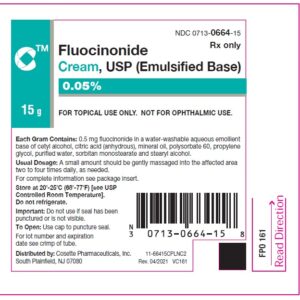Board members and policymakers with the senior care advocacy group American Society on Aging, also known as ASA, and senior care advocates have voiced fears over the Medicaid cuts in the budget initiatives of the Trump administration and Republican lawmakers.
As of late June 2018, House Republicans in the House Budget Committee approved their House Republican 2019 budget, “A Brighter American Future,” that would cut $1.5 trillion from Medicaid, $537 billion from Medicare, and $2.6 trillion from nutritional assistance from Supplemental Nutritional Assistance Program (SNAP), Social Security, housing, disability and other programs. The measure will next be voted in the full House.
In one budget proposal the next ten years, lawmakers plan to cut $763 billion from Medicaid, $236 billion from Medicare, $213 billion from SNAP and $72 billion from the Social Security Disability Income (SSDI) and Supplemental Security Income (SSI) and $41.2 billion for the U.S. Department of Housing & Urban Development (HUD).
The budget proposal comes after President Trump signed into law a $1.9 trillion tax plan in April 2018, which is found to grant 83 percent of tax cuts to the richest 1 percent of the public.
To fund the $1.9 trillion tax measure, Trump and some House Republican measures propose trimming the overall budget by $1.7 trillion, including Medicaid, Medicare, SNAP, Social Security, disability and HUD programs.
Under the federal budget proposal for fiscal year 2019, expansion of Medicaid for those deemed to be too poor to qualify for private insurance but yet too rich for the state-based government medical program and who received coverage through the exchanges under the Affordable Care Act, also known as Obamacare, would end in January 2020, experts warn.
Individuals would be covered on a per capita allotment basis by state, leading to less coverage, experts say. Coverage for emergencies such as disasters or epidemics and those who always qualified for Medicaid would cease, experts say.
Such a policy would spell disaster for the program and its beneficiaries, who number in the tens of millions, including low-income and moderate-income households, seniors on fixed incomes and the disabled in need of nursing home care or home health services and caregiving.
Medicaid provides medical coverage through a state-federal partnership for at least 75 million low-income to moderate-income residents, which represents nearly 20 percent of the country’s population. This would cover 64 percent of all nursing home patients and 30 percent of all adults with disabilities.
The measure would erode the partnership and cease Medicaid as an entitlement benefit providing guaranteed coverages and calling on government to make budget increases to meet demand. Instead, they would cap funding for the program on a per capita basis through block grants with the states.
In turn, the states would exercise authority to restrict eligibility, scale back on benefits, impose co-pays and deductibles and otherwise find other ways to compromise the program.
This would lead 13 million residents to lose coverage by 2027 and insurance premiums to increase by 10 percent or $2,000 in 2019. Already costly deductibles and co-pays would rise much higher, rendering coverage to be too expensive for low-income to modest-income families and middle-class families.
ASA leaders say this and other measures have not been well met by organizations and watchdog groups. The Kaiser Family Foundation has taken polls finding that over half of the public views the latest Republic proposal and others like it as unfavorable.
Other groups such as the American Medical Association, the American Academy of Family Physicians, the American Academy of Pediatrics and the American Heart Association all voiced opposition to the proposals.
Meanwhile, outgoing U.S. House Speaker Paul Ryan (R-Wisc.), U.S. Senate Majority Leader Mitch McConnell (R-Ky.), U.S. House Budget Chairman Rep. Steve Womack (R-Ark.) and Vice President Mike Pence worked with skeptical Republican senators and lawmakers to accept the proposals.
U.S. Senate Minority Leader Charles Schumer (D-N.Y.), U.S. Rep. John Yarmuth (D-Ky.) and member of the House Budget Committee, and U.S. Sen. Nancy Pelosi (D-Md.) are working to galvanize Democratic lawmakers and senators to put forth their own budget plans and oppose the newest conservative measure.
Tom Price, ousted leader of the Department of Health and Human Services, which oversees Medicare, Medicaid and Social Security, and Ryan support privatizing Medicare and turning it into a voucher system patterned after the Medical Savings Accounts (MSAs), which were developed over the last several years to enable businesses to restrict medical spending by their workers.
Paul Downey, President/CEO of Serving Seniors, a Califonia-based nonprofit organization providing social services for seniors living in poverty, and chair of the California Commission on Aging, the principal advisory board to the California governor and the state legislature, said cuts to Medicaid would be harmful to seniors.
“The biggest thing in OAA [Older Americans Act authorization] is the $85 billion cut in Medicaid over the next 10 years,” Downey, who is considered an expert in the OAA law and the actions of the Senate Health, Education, Labor and Pensions Committee, said.
“It does not take math insight to see. … [You] cut services and [hurt] low-income older adults and children.”
Downey said the cuts would especially impact seniors nationally but especially the seniors his organization serves in California.
“It is devastating to older adults,” he said. “California seniors [are part of a] daring initiative. About 93 percent receive subsidy premiums under Obamacare. [They] risk losing that if [the] OAA cuts more forward. It is either block grants [or] per capital. Either way, you get cuts. I can say [this] from firsthand experience.”
He explained that 85 percent of seniors receiving Medicaid live below federal level. They may pay rents in market-rate apartments for $850 per month. Many seniors fall under the federal government program guidelines of 120 percent below poverty.
In San Diego, Downey added the single-room occupancy apartments, also known nationally as SROs, are “horrible.” In the city, an occupant can pay $675 to $700 for 90- to 100-square-foot rooms as SROs. Meanwhile, market-rate apartments may command rents of $850 to $2,000 a month, he said.
“You take away access to healthcare,” Downey said, pointing to drastic cuts to nonhealthcare programs in the budget. “Premiums go up. They have no health care. This proposal is as mean-spirited as it can be. You target the vulnerable, the elderly, disabled segment [of the population].
“You will eliminate the Medicare waiver in different states. You couple it with the budget. Trump doubles down on being mean-spirited on the budgets — community block grant services, legal services and energy programs. … You talk about vital services, 16 percent proposed cuts.”
He also criticized the cuts to the senior jobs training programs and HUD aspects of the budget.
“[The jobs program is the] height of hypocrisy — job training to older adults,” Downey said. “Look at HUD, a 20 percent cut. [The HUD] leader does not believe in public housing. … San Diego [seniors] get to HUD. [This already means] five to six years of waiting for housing. With section 8, [there is already an] 11-year wait. [And yet] you cut HUD by 20 percent.”
William “Bill” Benson, Principal and Managing Partner of Health Benefits ABCs, a health and aging policy consulting firm in Silver Spring, Md., agreed, expressing concerns for the fate of the Social Service block grant.
“It’s the larger pot of human service foundation,” Benson said. “About $1.7 billion goes to states. It’s very discretionary. States have options. … [This] affects kids, the disabled, the mentally ill and the elderly. Some states use nutrition [programs for alternate uses.]
“It is the lifeblood of [adult] protective services [also known as APS] in 34 to 37 states … States like New York and Texas [are working to] fully fund people. … It is [an] entitlement … Title 2.0 of Social Service. It’s not in Trump’s budget and Congress will take appropriations. It is at risk.”
He said that, in the reconciliation Congressional session, lawmakers are planning to cut $18 billion from the SSBG in a 10-year window and $1.7 billion per year. The SSBG program includes adult protective services, child protective services and home-delivered meals.
“[They will] take it and eliminate it [and yield a certain amount] in savings,” Benson said. “There will be cuts in other things. [The money] will fund other initiatives. .. [It will] fund infrastructure support. [The lawmakers are going to present the] $1.7 billion [cut] as [a] really attractive package.”
He said outgoing House Speaker Paul Ryan supports elimination of the program. “[He says it is] inefficient and duplicates other programs,” Benson said. “Without being the boy that cried wolf, it would gut states. It would go to statehouses.”
Downey said his organization Serving Seniors provides seniors with 124 to 500 meals a day. He said he once went on a route with two of his organization’s drivers for weekend meals and delivered 260 meals in the space of five hours. Along the way, Downey encountered an elderly woman who overdosed in methamphetamine at a single-room occupancy facility, also known as SROs.
In fact, men who were cooking methamphetamine paid her with the drug as they could not afford to pay money for their rent. Downey said they were eventually evicted from the organization. Another elderly woman in another SRO could not get her cane out of an elevator, which was malfunctioning for two weeks.
Two elderly men lived in the most squalid conditions in the SROs. In one random day, Downey reported seeing “disgusting things,” including bedbugs and lice and smelling foul odors.
Benson called the cuts to funding, including for emergency room visits, “mean-spirited” and targeted towards society’s “most vulnerable” persons.
“You take this away [but] problems will not go away,” he said. “Call the paramedics and patients stay two weeks in intensive care units (ICUs) in San Diego. [The] ICUs stays will take up $24 million … All other people [do] not get sick. They go to ER. Someone will pay for us … the insurance cost shifted.”
He added that there is a need for more affordable housing in San Diego and the budget cuts will hamper their development. San Diego, Benson said, has experienced a 16 percent increase in senior homelessness, costing programs $50,000 a year.
“ [They] cannot find a place to rent or write a check,” Downey said. “[They have to deal with red tape. … I have a line of people who cannot pay.” The problem, he added, is prevalent in the urban and rural areas of the state of California. In the statehouse of Sacramento, the statehouses are eying a 70 percent in substantive cuts to the SSGB.
Benson said that HUD’s service coordination initiatives and the transportation budget are also being cut, losing subsidies.
He said, as chair of policy for the ASA, that he leads the organization to engage stakeholders to agitate and demonstrate against these cuts. The organization seeks to protect Medicare and Medicaid by learning the issues and engaging in the debates.
ASA leaders point to connecting with other entities watching Congressional action on the programs and lobbying such as the National Committee to Preserve Social Security and Medicare (ncpssm.org); the National Senior Citizens Law Center (nsclc.org); AARP (aarp.org); the Center for Medicare Advocacy (medicareadvocacy.org); and the Medicare Rights Center (medicarerights.org).
“Historically, ASA [has always] played an educational role,” Benson said. “[We need to] do more. Our mission is to engage and what they can do about it. We are in every Congressional district.
“Be more [of an] activist on the community level. Rise to the occasion. Go to the townhall meetings. [Meet with the U.S.] Representatives and Democrats.”
At Pill Pals, we employ a fiscally conservative approach to healthcare. We provide Individual Plans and Employer Sponsored Programs that save patients money (seniors included).

 Our Pill Pass® Drug List is only $6.99 or less and Shipping is FREE!
Our Pill Pass® Drug List is only $6.99 or less and Shipping is FREE!







